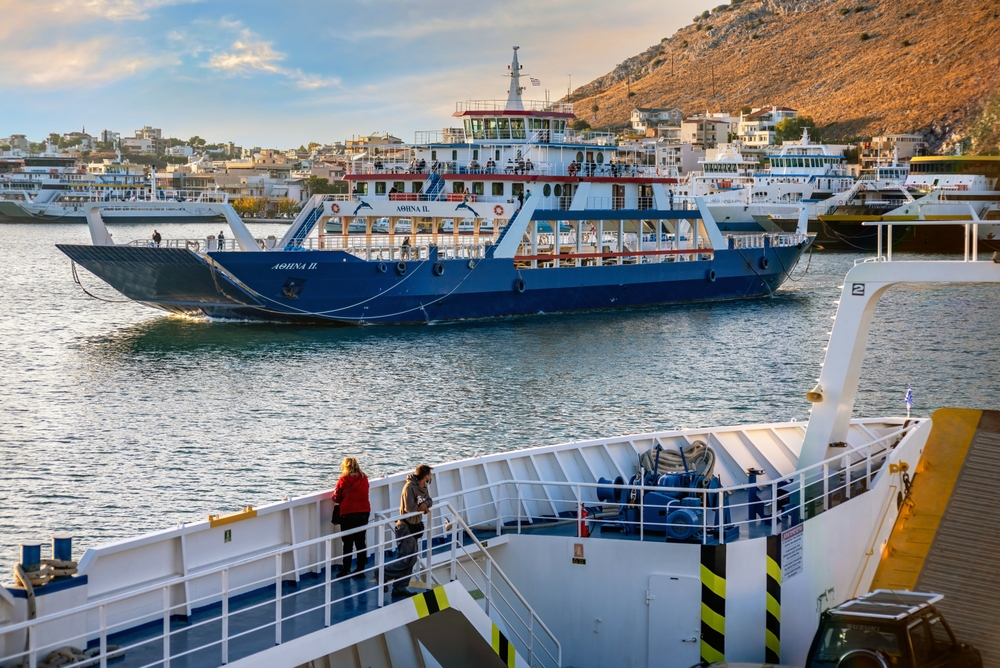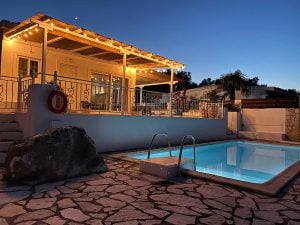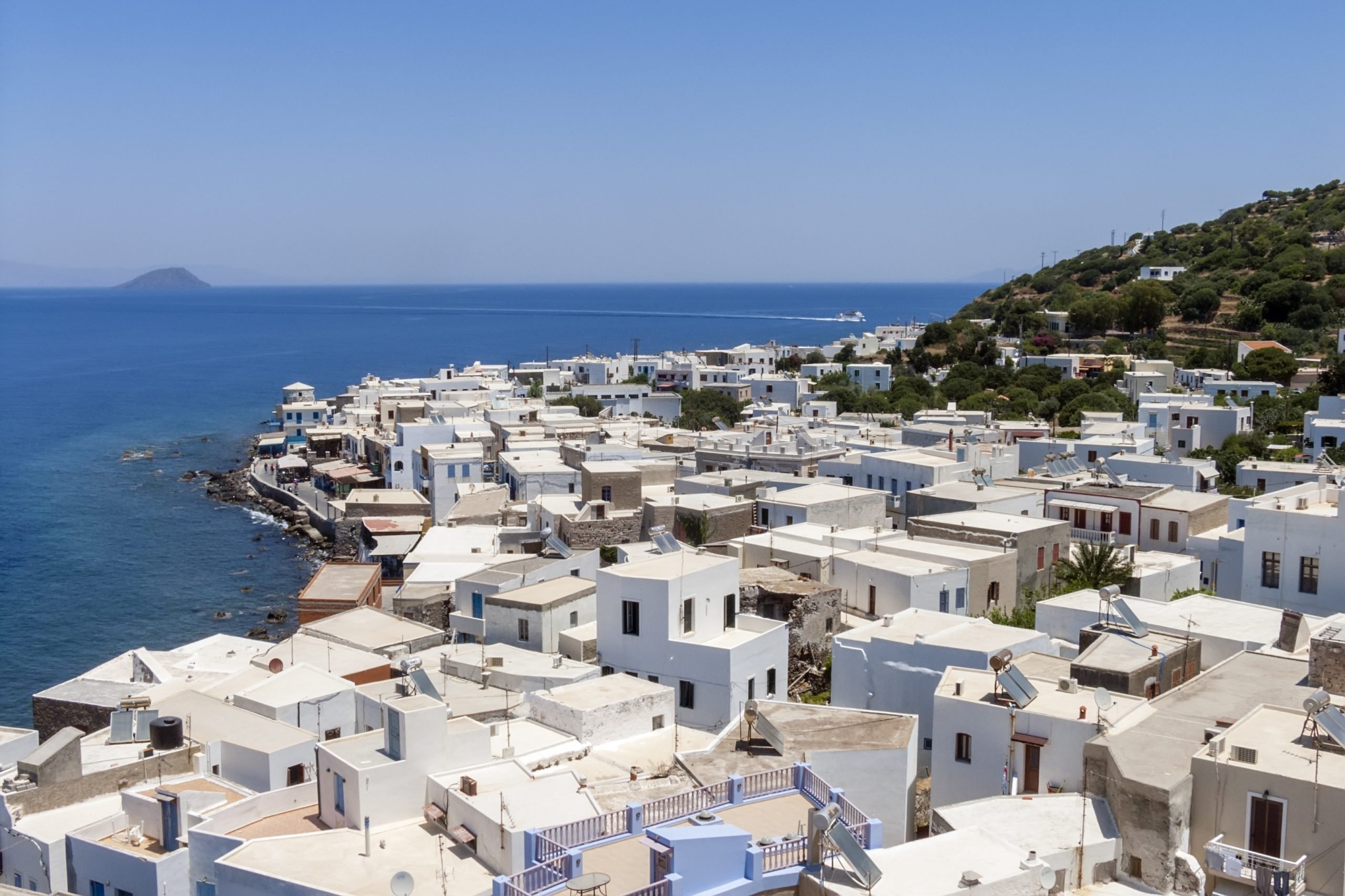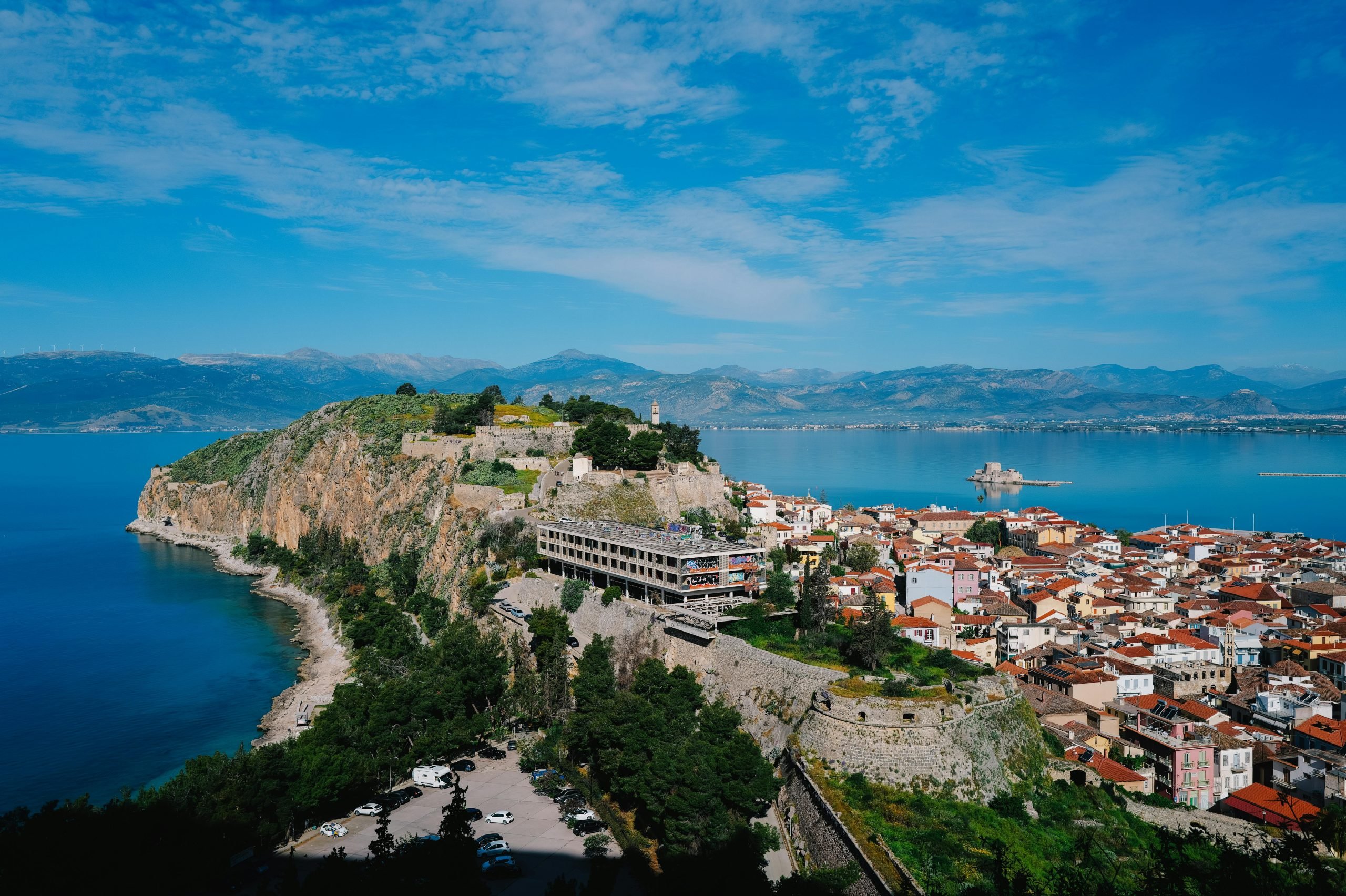Greece is known for its ancient temples, beautiful beaches, famous hospitality, and picturesque towns and villages. One thing is sure: No matter how you travel, whether by land, sea, or air, you will fall in love with Greece’s scenery. However, the most appropriate mode of travel will depend on your budget, what kind of sights you like, and whether you are going to an island or the mainland.

Greece by Train
Greece’s railway network passes through areas of Greece which aren’t seen from the highway, giving you a unique view of the nation’s interior.
The railway in Greece is run by Hellenic Train (Also known as OSE as of 2021).
There are 2 types of trains: The regular (slower) trains which stop at all stations, and the Intercity (IC) trains which skip some stops and connect major cities. Trains in Greece also usually have a cafe bar on board.

Greece by Bus
Buses in Greece are the cheapest option for transport. They connect almost every city and are operated by KTEL. Major towns will usually have daily connections to nearby cities. You can expect buses to leave closer to the scheduled time when leaving from the city. However, they can be delayed on their return. Small towns likely have at least one bus leaving daily, and remote areas might only have a few buses leaving per week. These KTEL buses aren’t necessarily for tourists, but for locals who want to go to town to shop, leaving early in the morning and returning in the afternoon.
Greece’s biggest cities, like Athens and Thessaloniki, have 2 or more bus stations. The 2 main stations in Athens, for example, are Kifissos and Liossion. It’s important to be aware of which station services the region you are trying to get to. For small villages, the bus station might be a shaded area next to the local coffee shop. Island villages also have buses, and can be useful when you don’t have your own car.

Greece by Ferry
Traveling to the Greek islands by boat is a rite of passage for tourists. During the summer, a number of lines service both large and small islands and connect them to the Greek mainland. In the winter, boats run more rarely to smaller islands from Athens. From November to April, connections between some of Greece’s smaller islands are non-existent.
Some of the most popular islands to spend more than 3 days are Crete, Rhodes and Naxos. The Cyclades are a popular destination from Athens as well. Among your boat options are fast car ferries, slow car ferries, catamarans, and hydrofoils called “flying dolphins.” Boats with overnight cabins are available for longer journeys. Each type of vessel has options for food. The best way to search ferry availability is FerryHopper, which organizes all ferry options in one convenient search.
Note that if you like to spend time sunbathing while traveling between the islands, be aware that the high-speed car ferries have limited deck space. Slower, traditional boats offer more options for sunbathing.

Greece by Plane
Greece’s national carrier is Aegean Airlines, which, along with its subsidiary, Olympic Air, have almost a monopoly on domestic routes. The one exception is Sky Express, who do a good job connecting the smaller islands and generally have cheaper prices (although you might have to pay extra for baggage and add-ons). The newest airline in Greece is AirCycladic, which offers short flights between the Cycladic islands in tiny planes that fit 12 passengers.
Pro-tip: As a result of subsidies from the Greek government, it can be cheaper to book flights separately instead of a single booking with your entire itinerary included.
Athens has the biggest airport in Greece, and most major European cities will have direct flights here. If you are visiting one of Greece’s larger or more popular islands, (like Rhodes, Mykonos, Santorini, or Corfu), you will be able to fly directly from Athens to the local airport on the island. If you are visiting one of smaller Greece’s islands that doesn’t have an airport, you have the option to fly to the nearest national airport on a nearby island, and take a ferry from the port.

Greece By Car
Renting a car in Greece means you have the freedom to explore at your own speed, and to discover sights off the beaten track. Many epic stops in the Peloponnese, in the north in Meteora, and in less touristed areas like Epirus are only accessible by car or bus. Greece has a great deal to offer for road trippers, and you can even take your car on some ferries to the Greek islands!
It’s a good idea to rent a small car because parking in Greece’s bigger cities is difficult with anything larger than a sedan. Keep in mind if you’re coming from the UK that Greeks drive on the right-hand side of the road, like most other countries in Europe. There are 2 main toll roads in Greece. One goes from Athens to Thessaloniki, and the second goes from Athens to the Peloponnese. You will need to stop at irregular intervals to pay the fees, which vary from 1 to 4 Euros.
Pro tip: Renting a diesel car is cost-effective because diesel is cheaper than petrol in Greece. Prices for rental cars are relatively inexpensive compared to other area of Europe. Fuel stations are fairly common unless you are in rural areas. However, some stations only take cash, so be sure to have cash on hand when you travel by car.



































